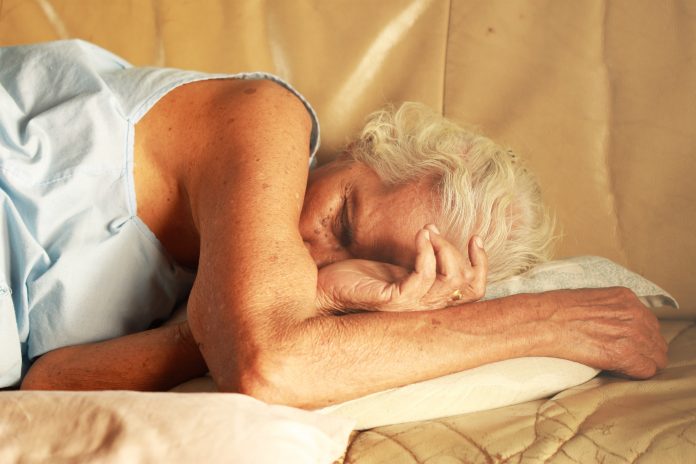Good quality sleep is essential to good health. However, many don’t get good quality sleep, or get enough sleep in general. While it may not be a big deal to miss a night of sleep from time to time, the reality is that getting poor quality sleep on a regular basis can be highly detrimental to health, and can have a major negative impact on your health over time. If you are looking for ways to get better, deeper and longer lasting sleep, here are some things that you can begin implementing into your daily routines.
Work On Improving Your Diet
One of the first things you should do when trying to get better quality sleep is assess your diet. What many don’t realize is that diet can not only have a big impact on how you feel throughout the day, but also on how you feel and sleep at night. Foods that are high in sugars and refined carbs can cause your blood sugar to spike and crash. This can cause your energy to spike and crash as well, and can have a negative impact on your sleep cycles. This means you may not only have more trouble falling asleep at night, but it may be harder for you to stay asleep as well.
Along with reducing foods that can be harmful to sleep like sugary foods and foods that are high in carbs, it can also be a good idea to increase that amount of foods you eat that can help promote good sleep like green superfoods powder and fresh fruits and vegetables. Foods high in antioxidants, like fresh leafy greens and other kinds of produce can help to balance your hormones and your blood sugar, which can make it easier for you to stay on a schedule and fall asleep easily when it is time to go to bed.
Avoid Beverages That Sabotage Sleep
When it comes to what you consume, it isn’t just the food you eat that can hurt your sleep, but the beverages you drink as well. One of the worst sleep disruptors is caffeine. Caffeine is a great stimulator, which is why so many love it as a way to get themselves up and going in the mornings. However, because it stimulates the nervous system it can not only give you energy in the morning, but it can also keep you up at night as well. While a cup or two of coffee early in the day may not have a major impact on your ability to sleep at night, drinking caffeine in the afternoon or evening could make it difficult for you to fall asleep at bedtime.
Another beverage that can be detrimental to sleep is alcohol. Even though many may think that a few drinks at night can be a great way to relax and unwind at night, the reality is that it can disrupt your sleep cycles. So, while it may be possible to fall asleep initially, it can often be difficult to stay asleep throughout the night. Not only that, but you will also struggle to fall into deeper more restorative sleep cycles that will allow you to feel truly rested. While occasional drinking at night may not hurt your sleep in the long term, drink at night on a regular basis could be hurting your quality of sleep in a big way.
Have a Relaxing Sleeping Environment
It isn’t just what you ingest that can have a negative impact on your ability to sleep well, but the environment that you are sleeping in as well. If your bedroom is too full of noise or light, or is too hot, it could be hard for you to get truly comfortable and fall into a deep sleep. To improve your sleeping environment, it can be a good idea to take some time to assess what about it could be affecting your comfort levels. If your room is too bright, trying room darkening curtains or blinds can be helpful. If your room gets too hot at night, it can be a good idea to turn down the heat before you go to bed. If your bedroom is exposed to too much noise, trying earplugs or installing some noise cancelling panels can help reduce your noise exposure.
Start a Calming Bedtime Ritual
Starting a bedtime ritual can be a good way to get into gear for bed and prepare your mind and body for rest. When it comes to your bedtime ritual, what you do isn’t so important as making sure that it is something that you enjoy and that it calms you down. From taking a bath with calming essential oils like lavender to, journaling or doing gentle stretches, having a relaxing activity that you do every night before bed will help signal to your brain and body that it is time for rest and will make it easier for you to fall into a deep sleep.
Get Plenty of Exercise
It isn’t just what you do during the night that helps you get good sleep, but what you do during the day that impacts your sleep as well. By getting regular exercise, you can help burn off extra energy that might keep you up at night, but you can also balance hormones that impact sleep as well. Additionally, it isn’t so much what kind of exercise you do that matters as it is making sure that you work out consistently. Getting in a solid 20 minutes of exercise a day is ideal to improve your overall sleep quality, no matter whether you choose to go on a nature walk or lift weights.
Stick To a Regular Schedule
Something else that is key when it comes to getting good sleep is sticking to a regular schedule. When your schedule is erratic, it is harder for your body to sense what time it is, and ultimately harder for you to fall asleep when you want to. This is due in part to your body’s natural rhythms, also known as circadian rhythms. The more that you get up, eat, and go to bed on a regular schedule, the easier it is for you to fall asleep when you want to go to bed.
A Few Final Thoughts
Even though good sleep may be essential to good health, the reality is that many do not get quality sleep on a regular basis. The good news is, though, that there are many things you can do to improve your overall quality of sleep, and that can make it easier for you to fall asleep in general. By taking time to improve your diet, your sleeping environment and your activity levels, you can start getting more restorative sleep tonight.























